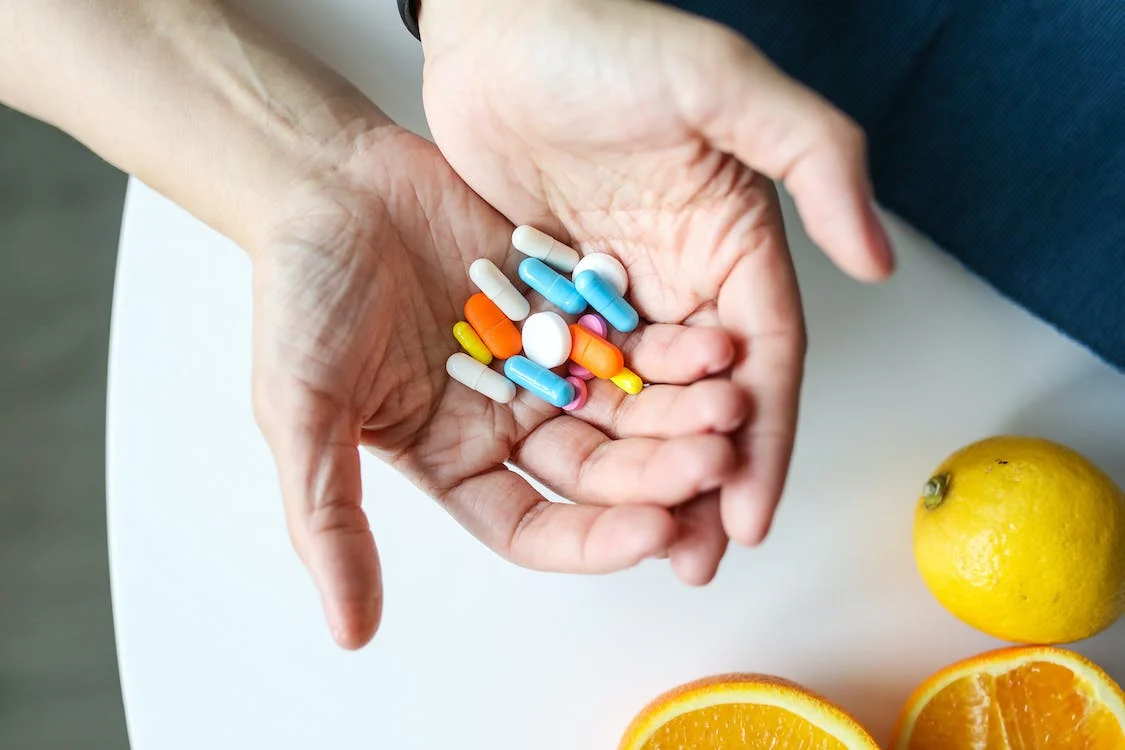Are OTC Drugs Really Safe And Cheaper?

The rising drug costs due to medical inflation push consumers to forgo necessary medical care. They’re now warming up to new, more affordable ways of getting their treatments and medications.
One of their widespread market alternatives is over-the-counter (OTC) drugs. In one statistical study, 77% of the respondents believe OTC drugs can help them lower costs without compromising safety. The real question is: are OTC drugs really safe and cheaper? Let’s figure it out here.
What Are OTC Drugs?
OTC drugs are medicines that can be bought without a prescription. They can easily be purchased anywhere, but usually at pharmacies, convenience stores, department stores, or gas stations.
They can help treat minor symptoms and injuries, relieve itches, aches, or pains (like muscle pains and allergies), prevent or treat diseases (like constipation and athlete’s foot), and manage recurring conditions (like menstrual pain).
They can also enhance certain moods, conditions, or abilities. Examples of these are dietary supplements you can take to achieve personal goals, including weight loss, increased energy, or improved concentration.
OTC Drugs Are Safe But Still Have Risks
The Food and Drug Administration (FDA) and other relevant government agencies in most countries monitor and regulate OTC drugs. They’re all scientifically and extensively examined first to ensure they’re effective and safe to consume before putting them on the market.
However, OTC drugs don’t come without risks. Such risks include:
- Negative interaction – For example, there are drug-drug interactions (happen when drugs are taken together, then the ways they affect the body are changed, like increasing the chance of experiencing side effects) and drug-food interactions (happen when certain foods and drinks prevent the medicine from working the way it should);
- Contraindications – For example, decongestants are harmful for hypertensive people. Harvard Health Publishing explains that while these drugs help shrink swelling, drain fluids, and let people breathe easier again, they do so by constricting blood vessels. These tighten blood vessels throughout the body, causing an increase in blood pressure.
- Allergic reactions – Some people show unpredictable side effects after taking certain medicines. These include itching, rash, hives, and breathing problems, which are all signs of allergic reactions or symptoms.
Moreover, note that if consumers are to get benefits from an OTC medicine, some degree of these risks have to be tolerated. In other words, defining an “acceptable degree of risk” is a judgment call since it varies from person to person.
Self-Medication Risks
There are also the risks of self-medication, but these may happen regardless of whether the drugs are prescribed or purchased over the counter. As the name implies, it happens when we consume medicines without seeing any professional medical advice.
While it’s an excellent preventive measure and first aid to improve symptoms, self-medicating can be very dangerous, especially if done incorrectly for a long period of time. It may result in the following dangers:
- Substance misuse
- Substance dependency
- Masking a medical condition
- Drug interactions
- Medical complications
How to Safely Take OTC Drugs?
The main safety concern of OTC drugs is people’s self-diagnosis, not the medicines themselves. Ultimately, the safe way of taking them requires common sense and responsibility.
Here are some tips to follow:
- Always read and understand the labels, including the dose and precautions.
- Always follow indicated instructions.
- Ensure proper dose when giving OTC liquid medicines to children. Use the measuring spoon or cup that usually comes with the medicine packaging or use a medicine dropper or syringe, not kitchen spoons that vary in size.
- Avoid taking multiple drugs.
- Immediately keep your primary care provider posted. Inform them about the current condition and OTC drug taken.
OTC Drugs Costs May Vary
The costs for prescription and OTC drugs depend on several factors. For prescription medications, how much you spend is typically based on whether your insurance has coverage for them. Generally, out-of-pocket costs with insurance can vary based on:
- Deductible
- Copay
- Available manufacturer or prescription discounts
Without insurance, whether not having or using it to buy prescription drugs, costs vary based on access to cost savings or patient assistance programs. These help you to pay less and save more than your insurance company.
However, whether you’re underinsured or uninsured, there are other non-medical costs you need to consider when it comes to prescription medications. For example, since they must be “prescribed” by a doctor, the consultation costs must be included. If it’s in-person, the traveling costs to a prescribing healthcare provider should also be factored into the overall cost.
In contrast, OTC drugs are often much more affordable than prescription drugs, but note that it’s not always the case. What’s certain is that they don’t require a prescription, so you can save on consultation and traveling costs and time. Opting for store-brand (generic) versions and buying them with coupons can also help you spend less.
Final Thoughts
OTC drugs are helpful and generally safe but can be used wrongly and dangerously. It’s always recommended to have basic knowledge of minor or major symptoms and follow responsible self-medication practices.
More importantly, seek professional help, at least by asking a pharmacist or consulting a virtual doctor, before taking them to ensure their safe and effective consumption. Remember that for recurring conditions, the safest approach is not to be a doctor but to call a doctor.
Read Also:



























